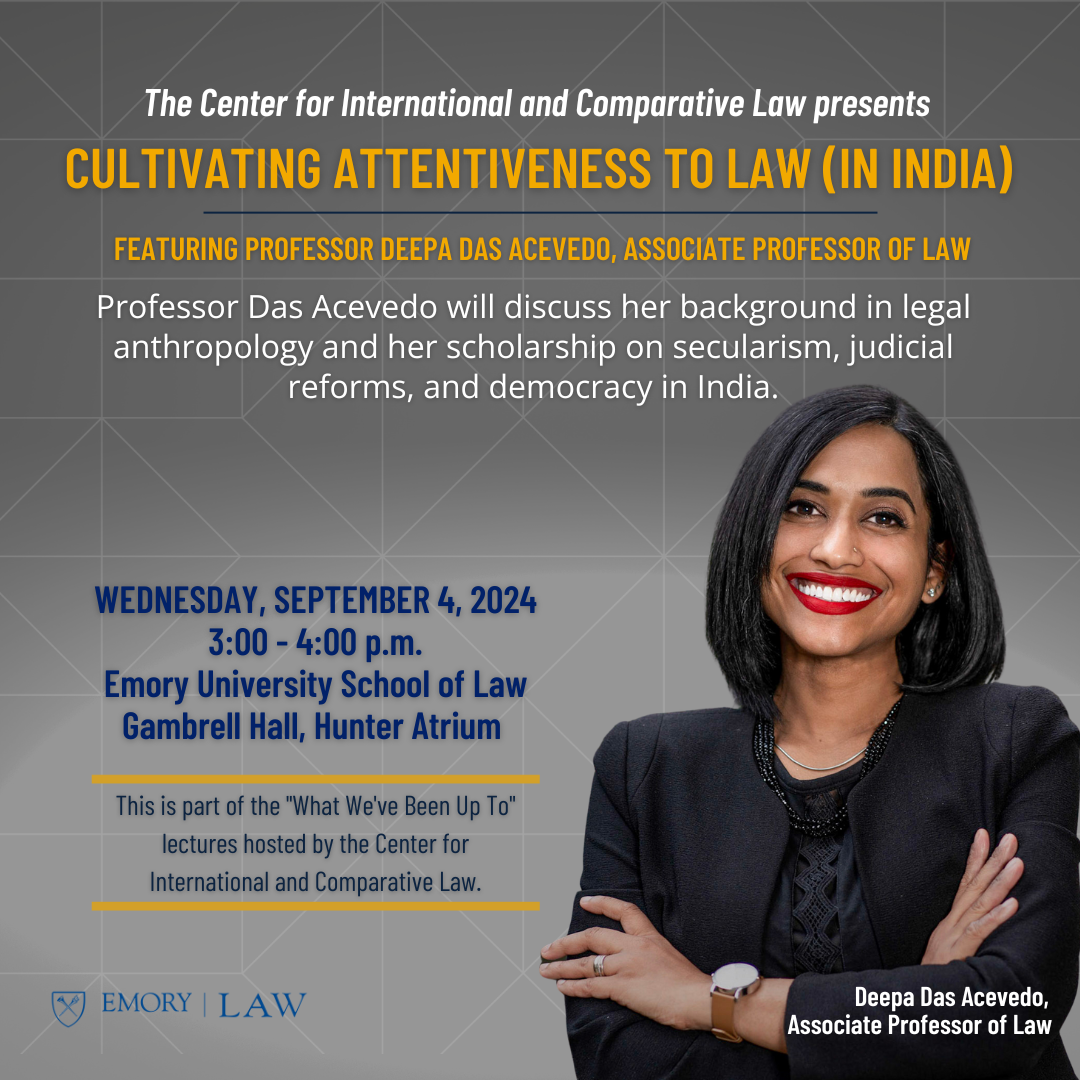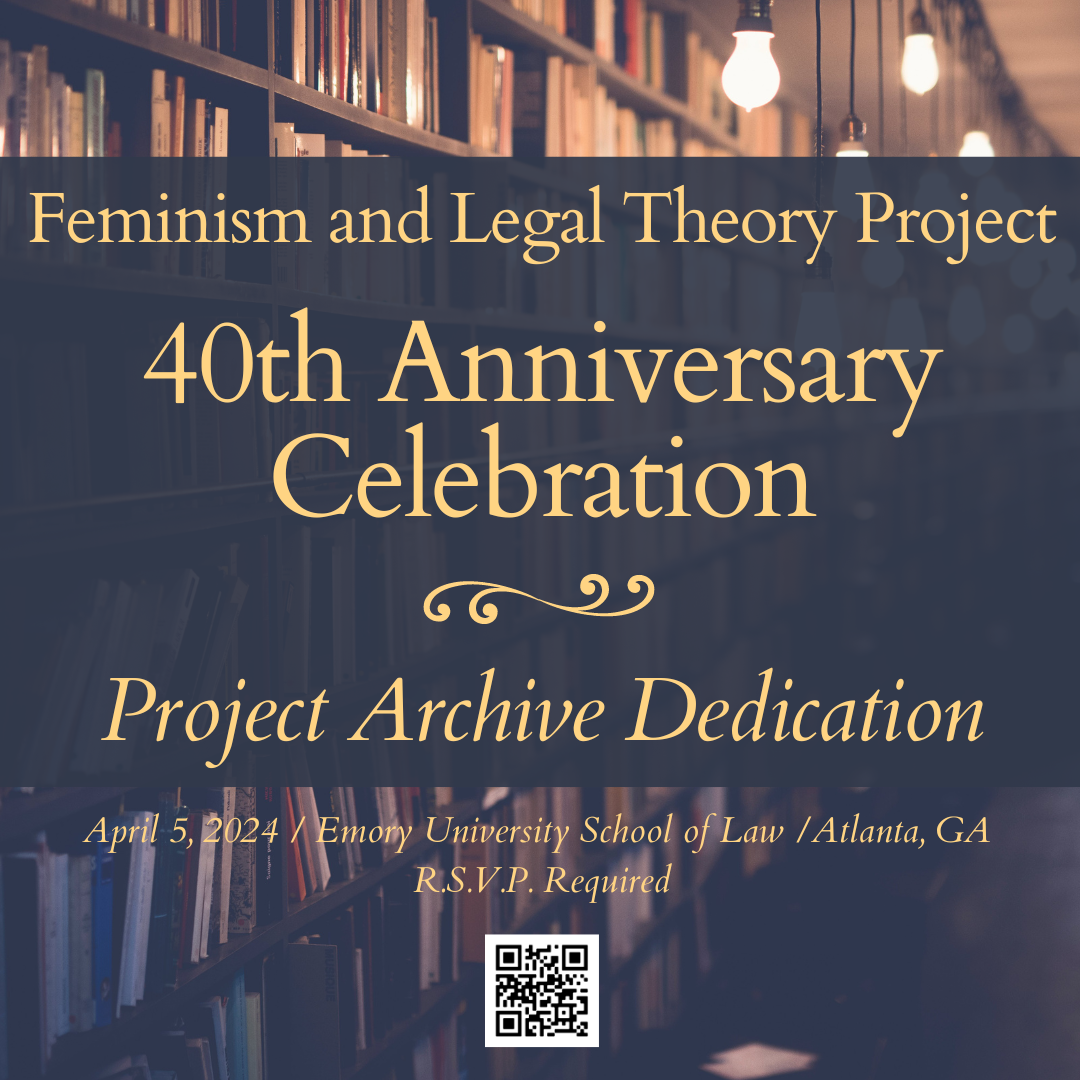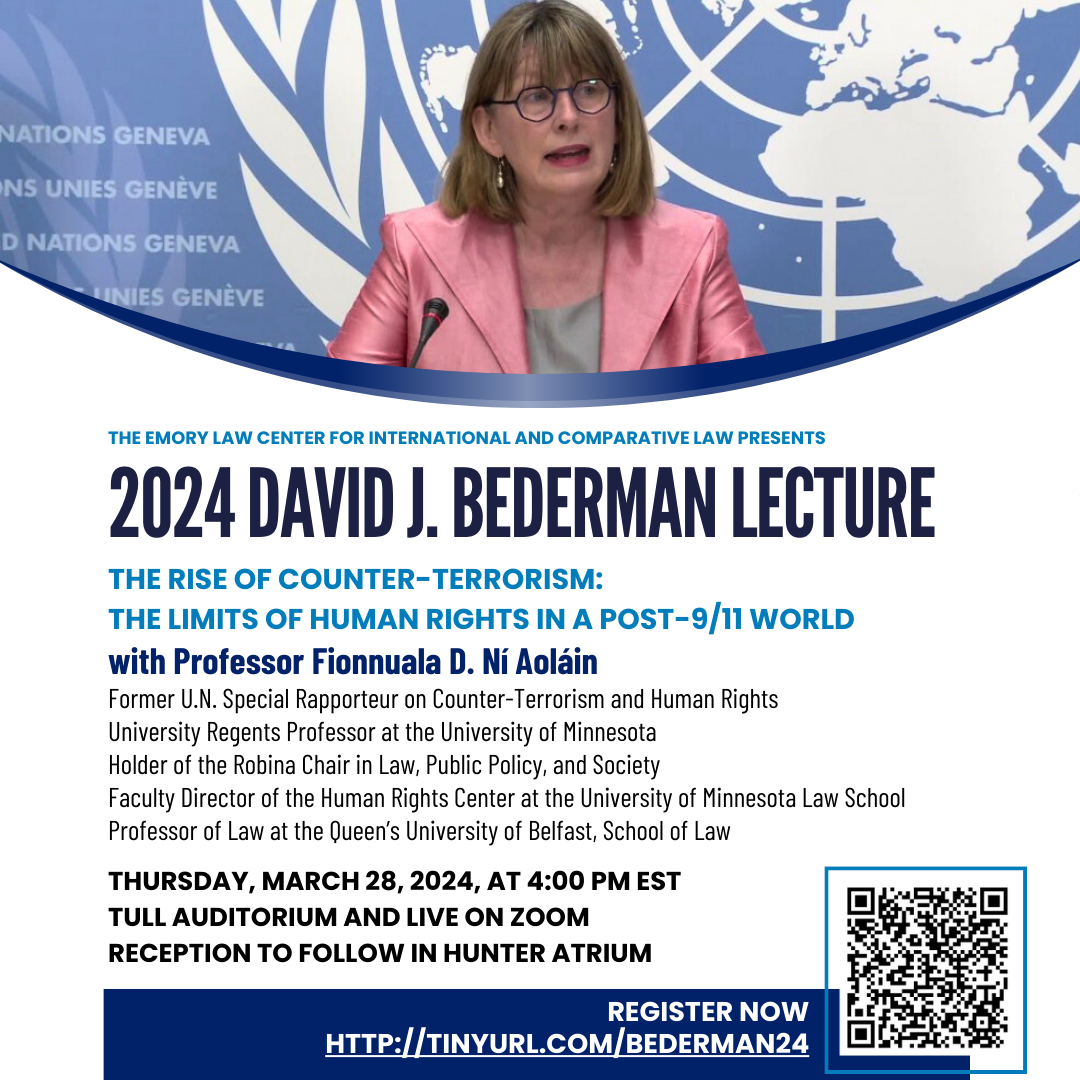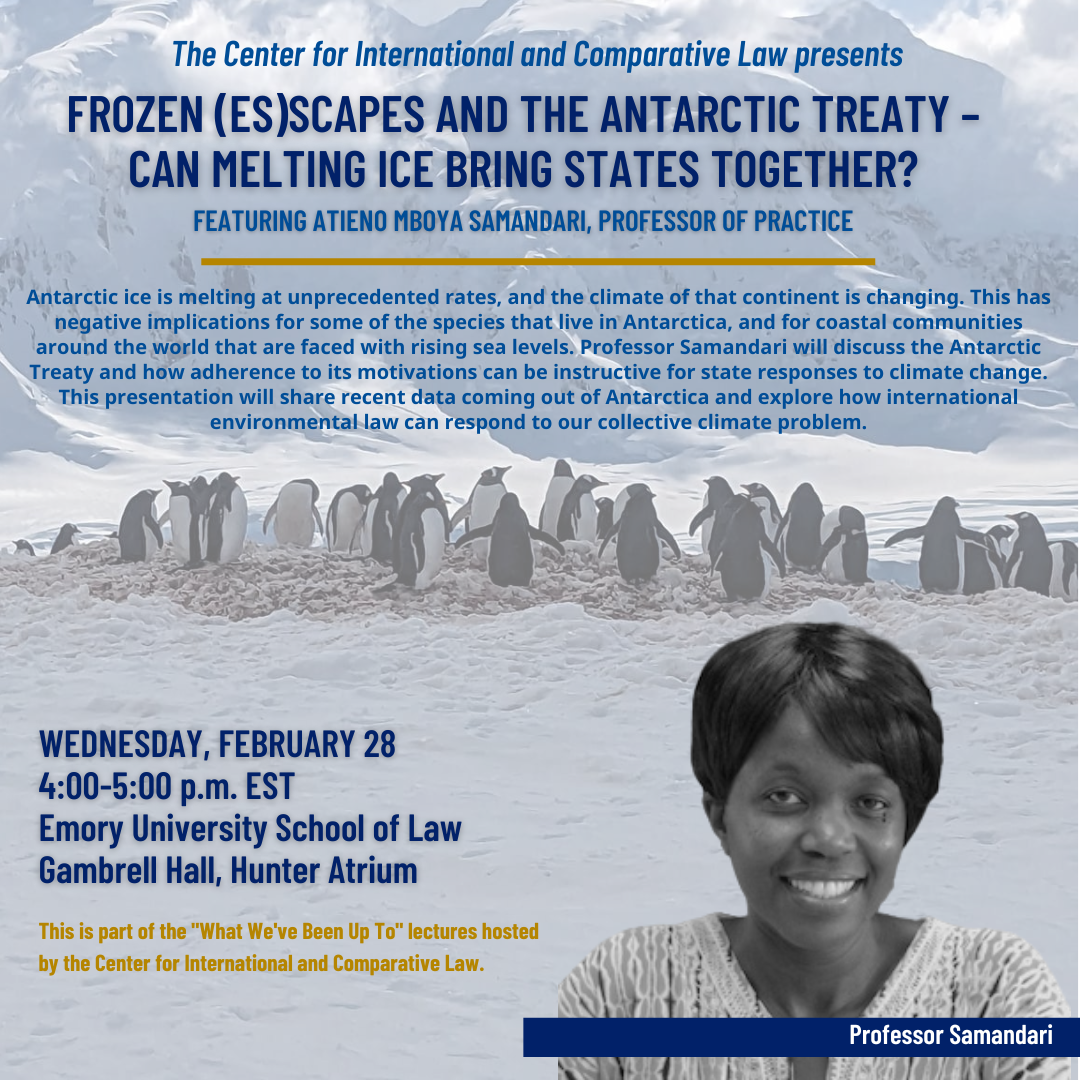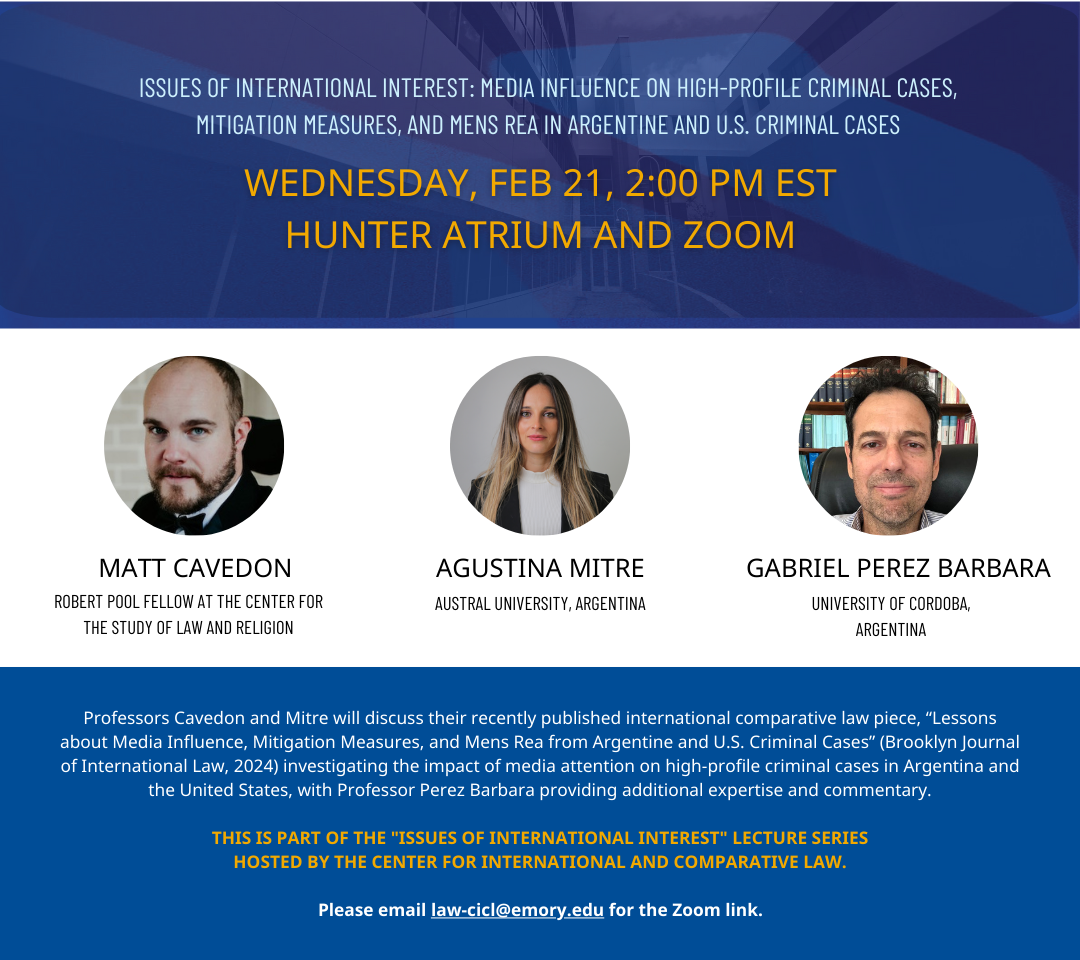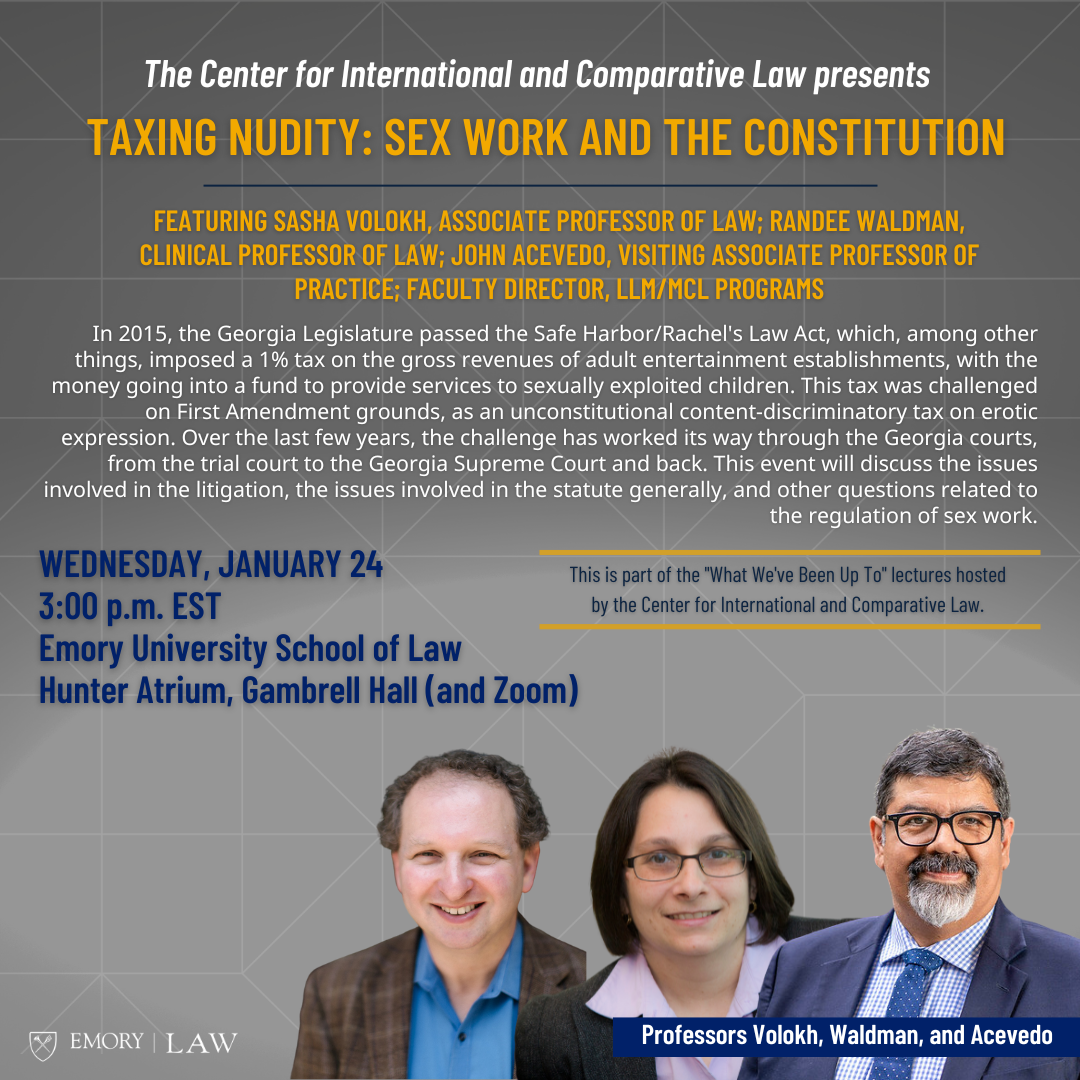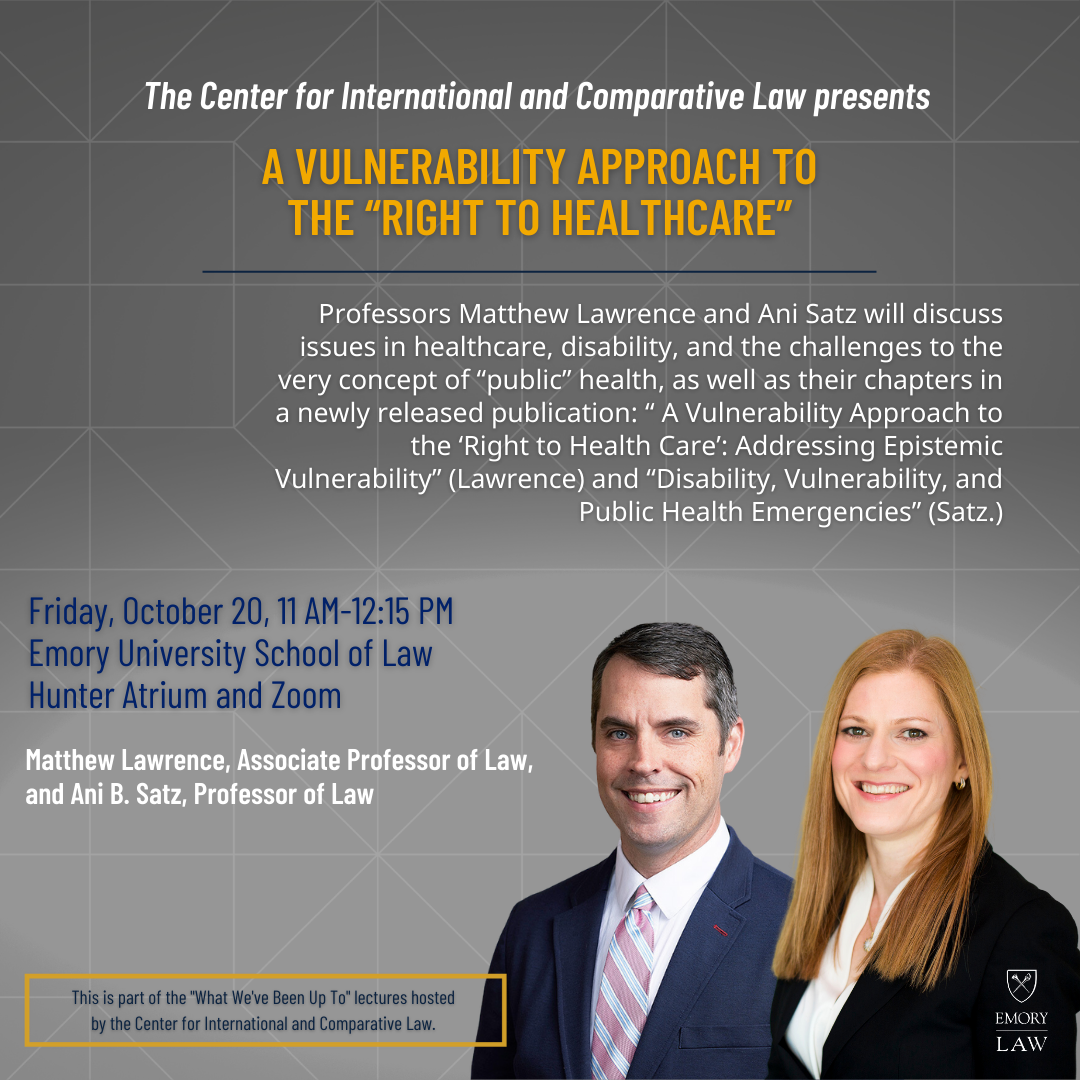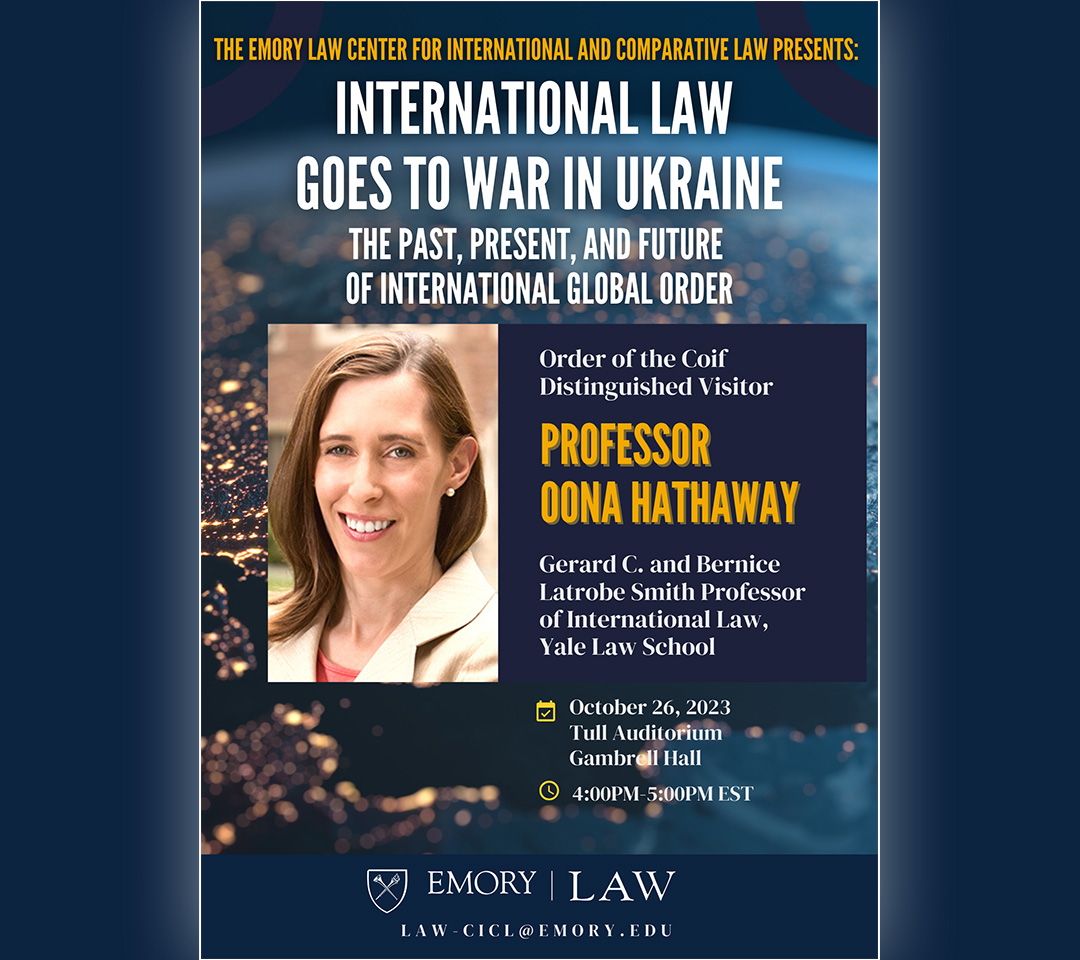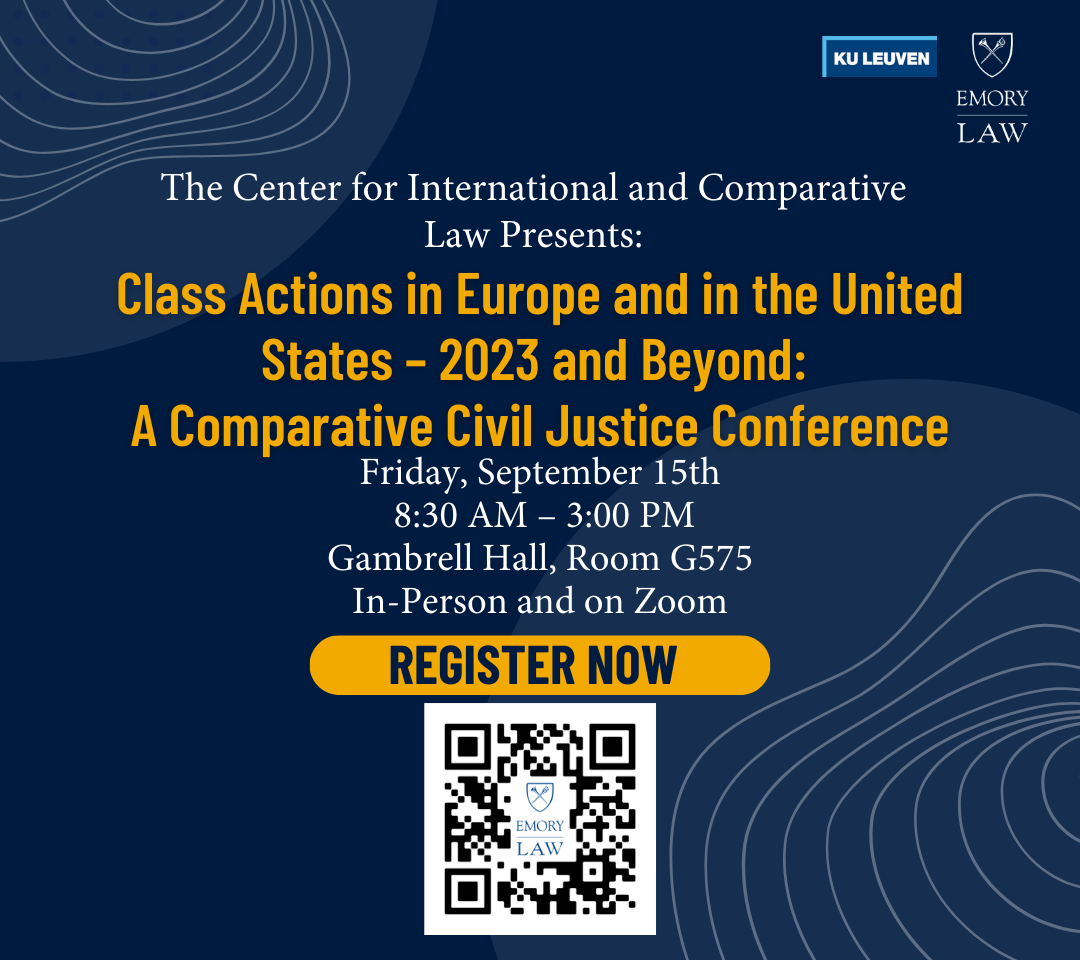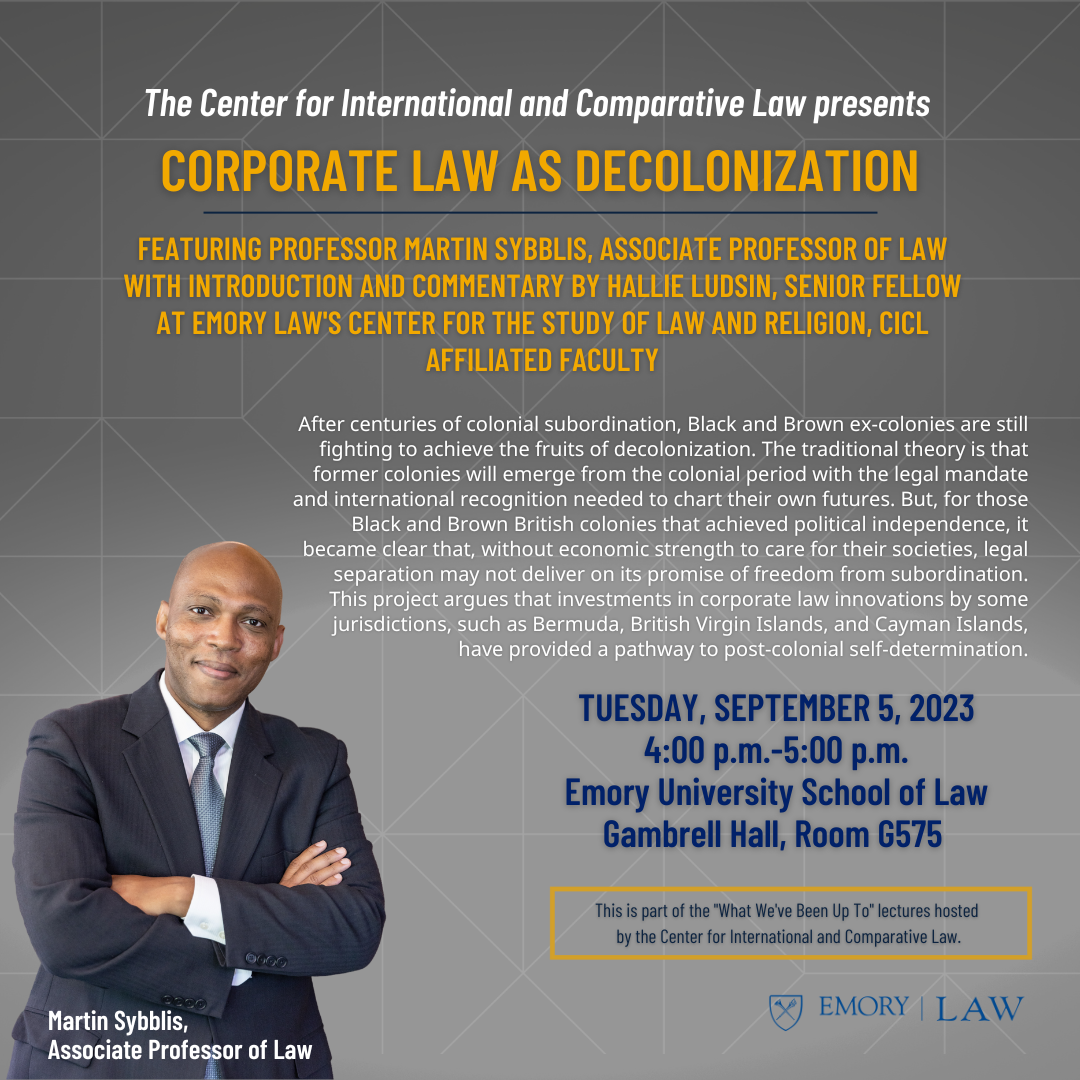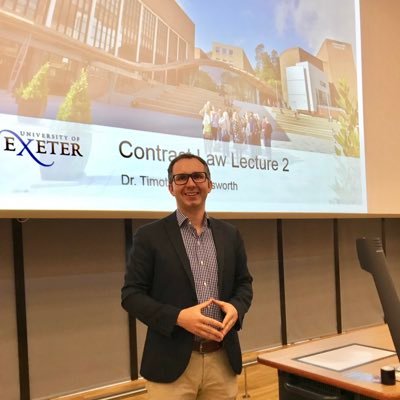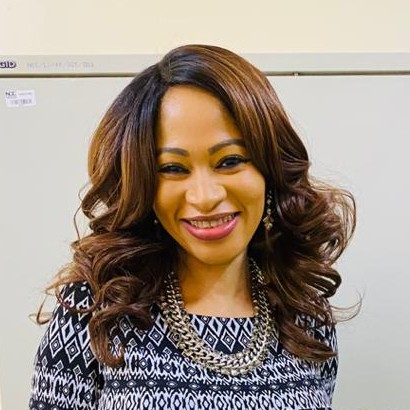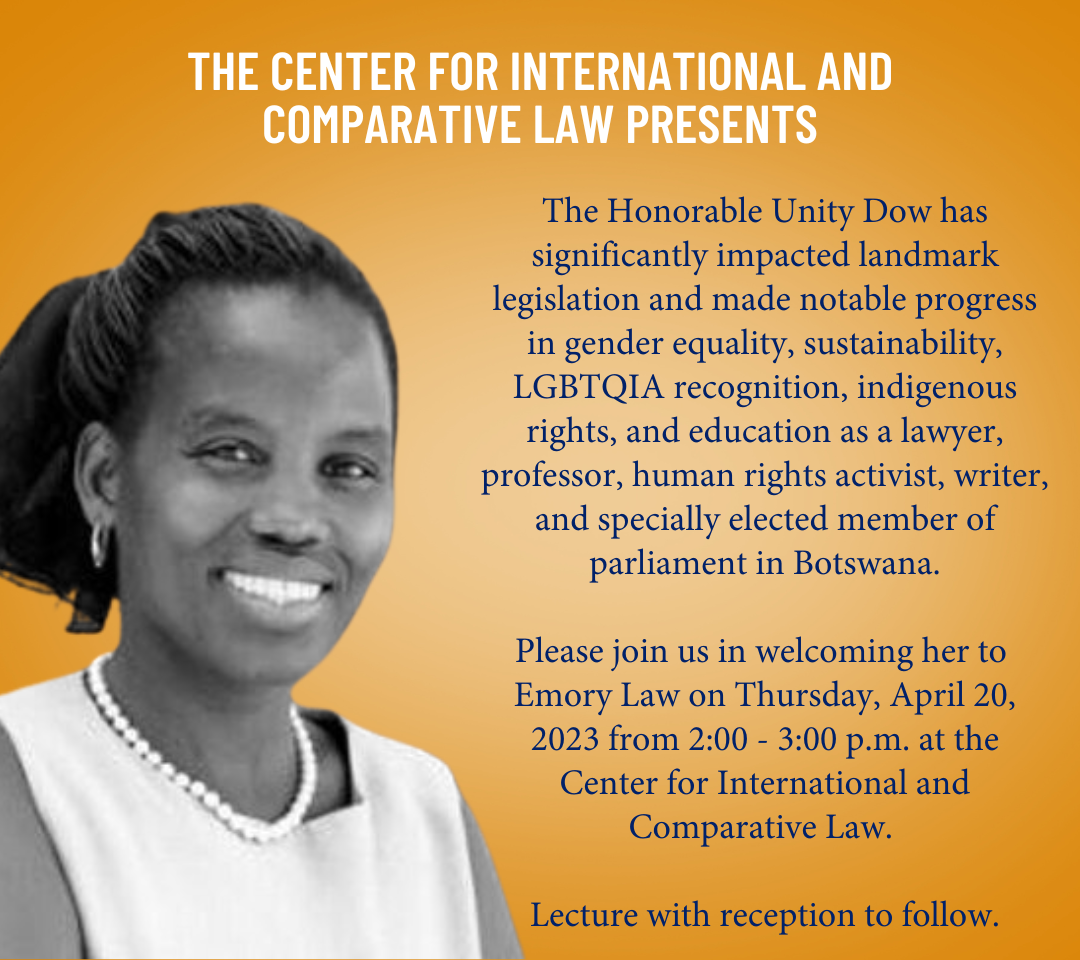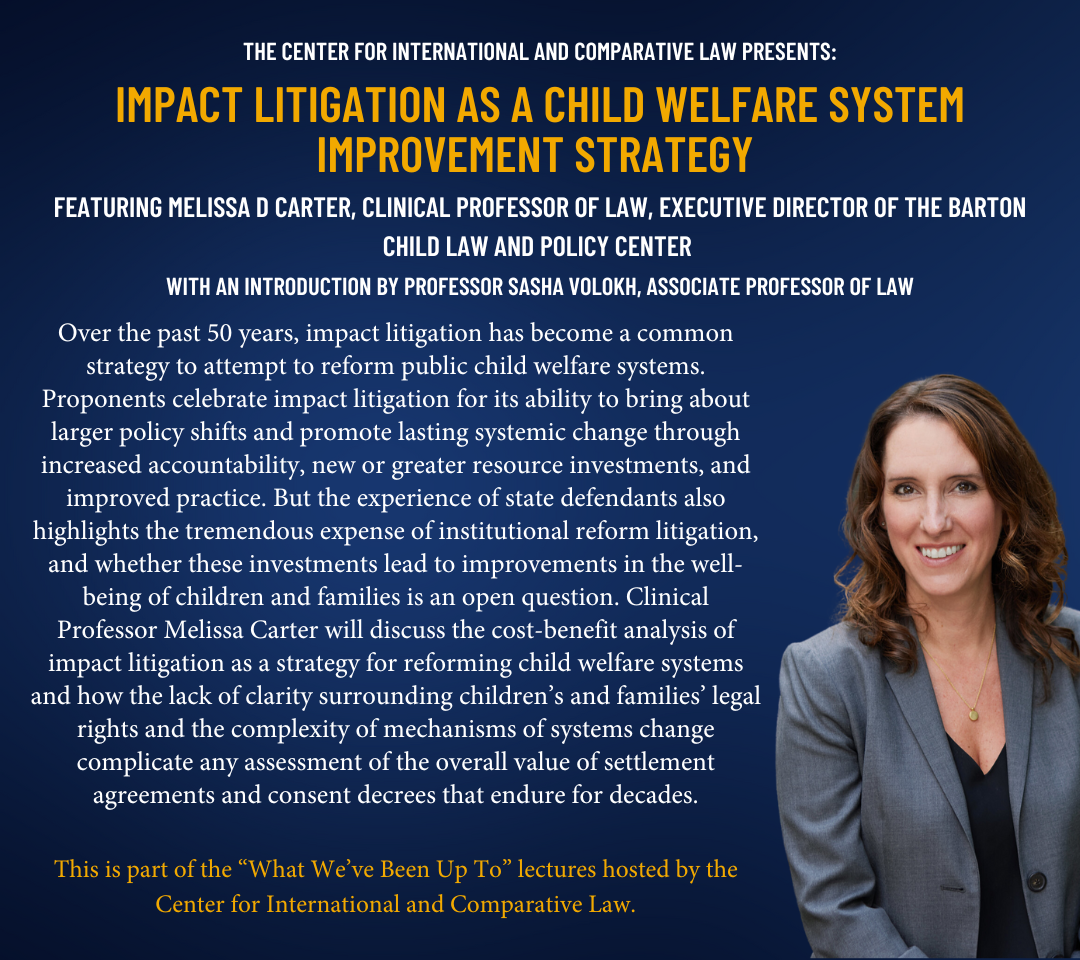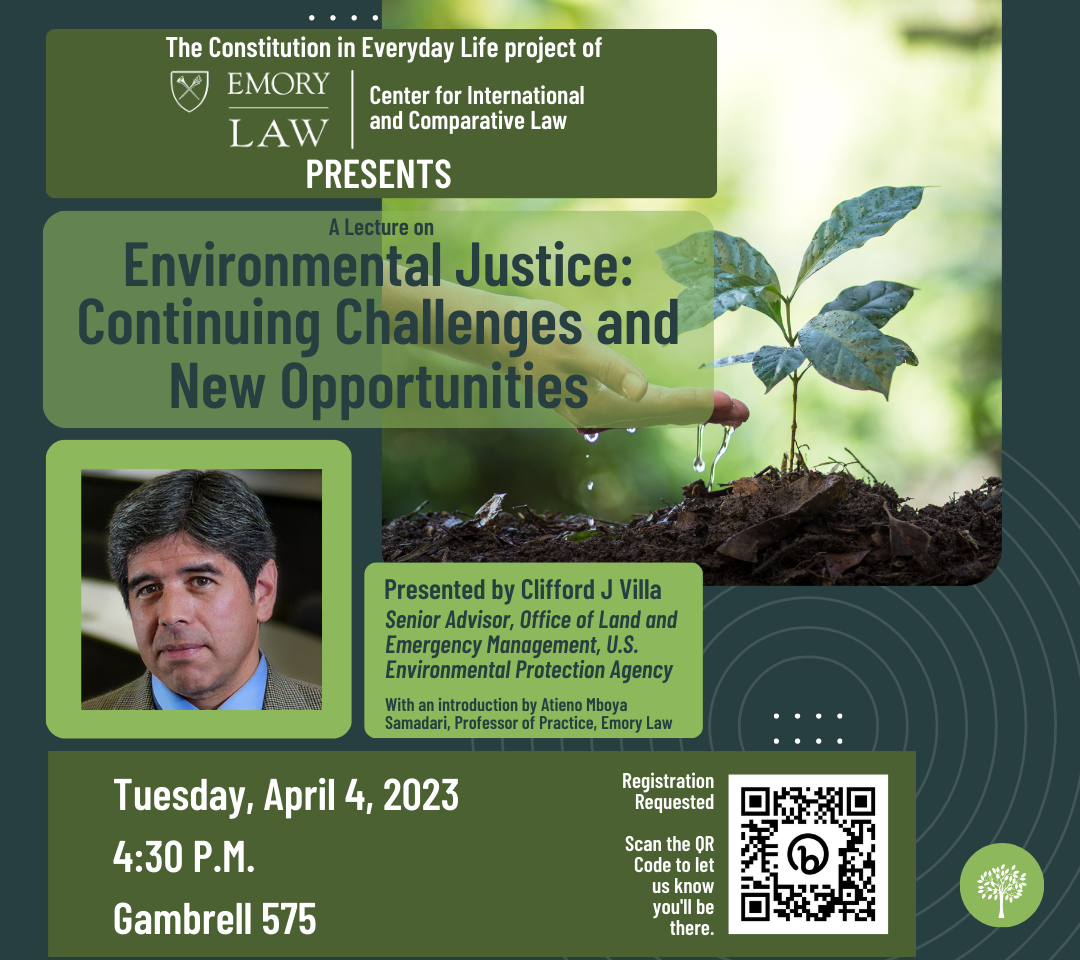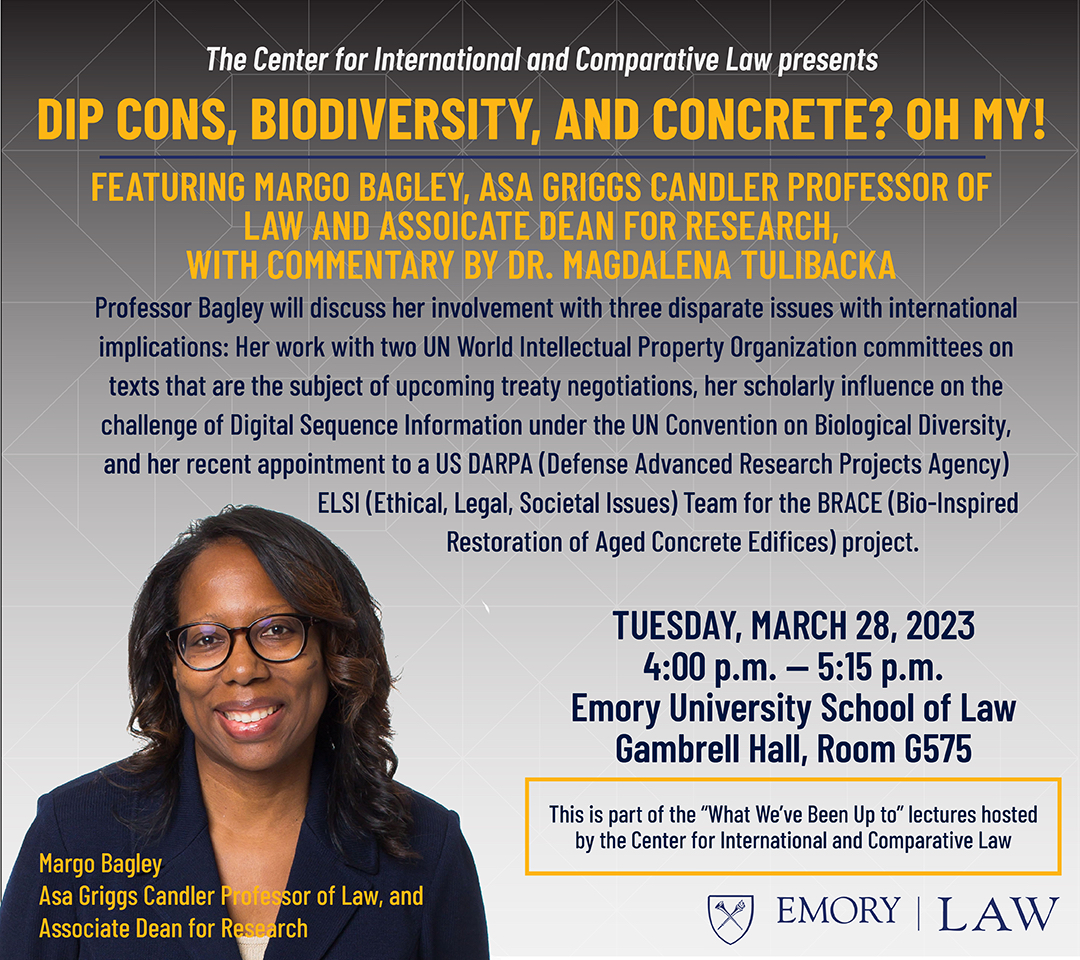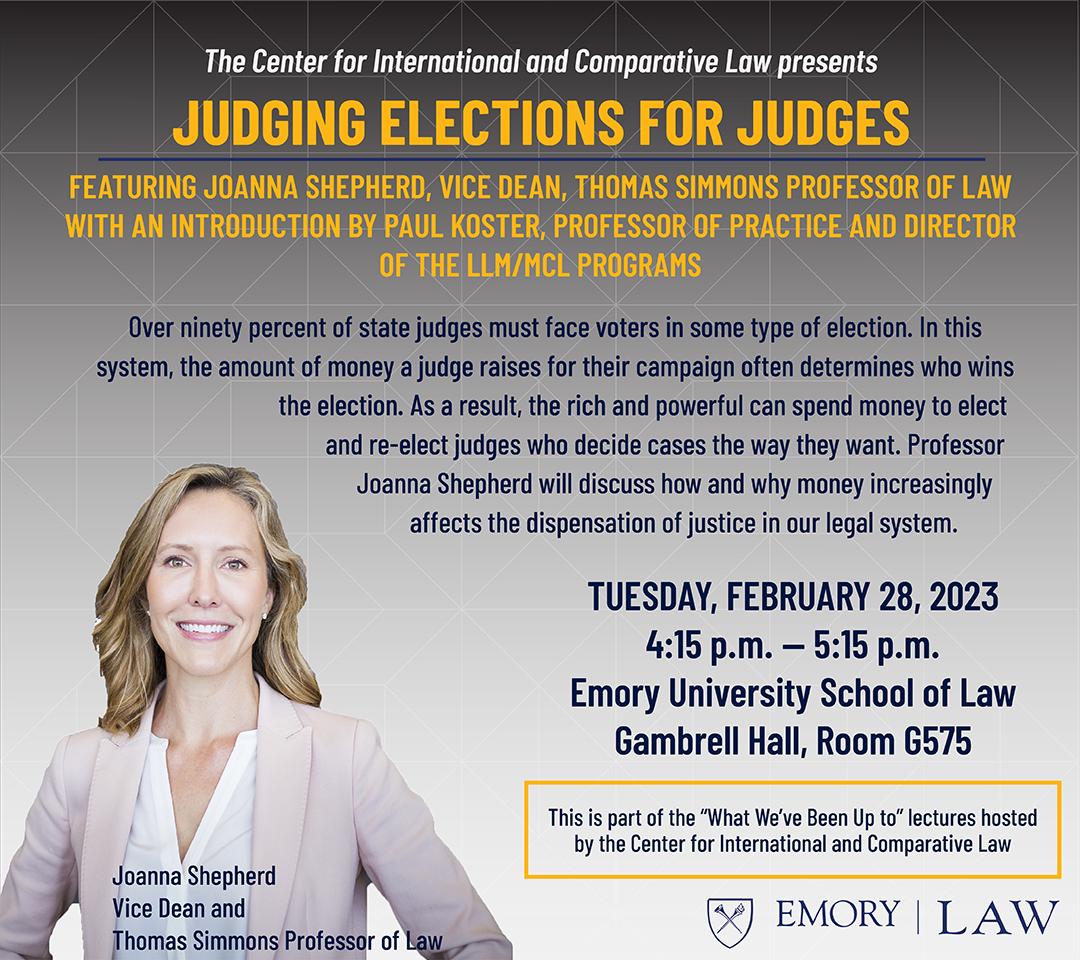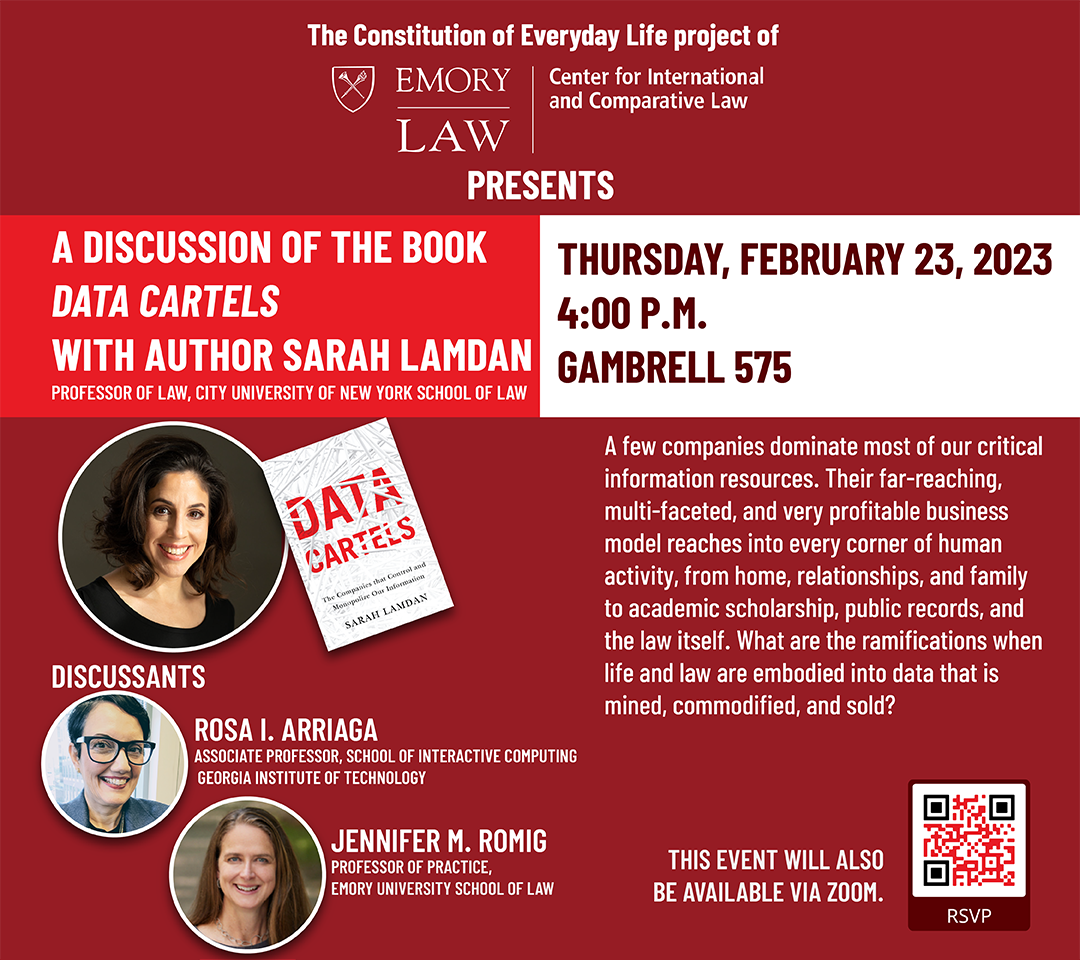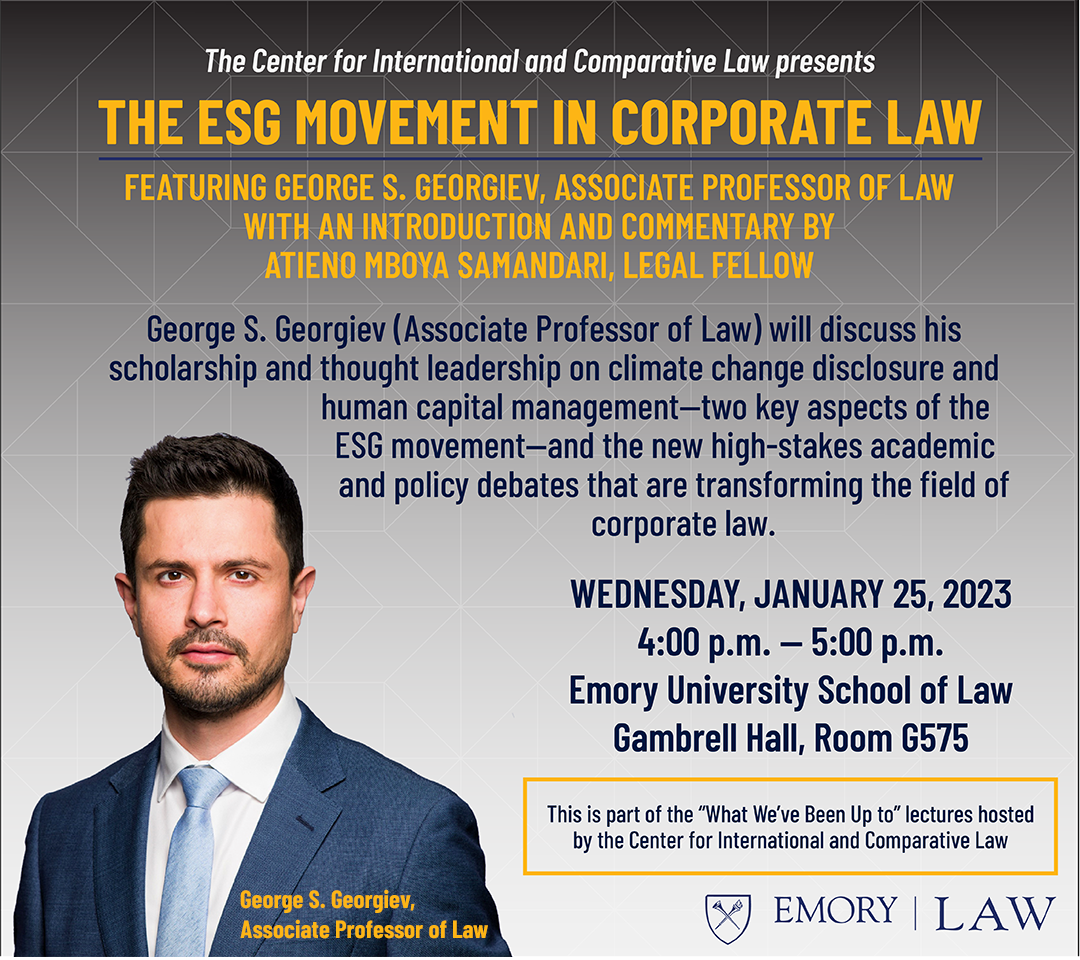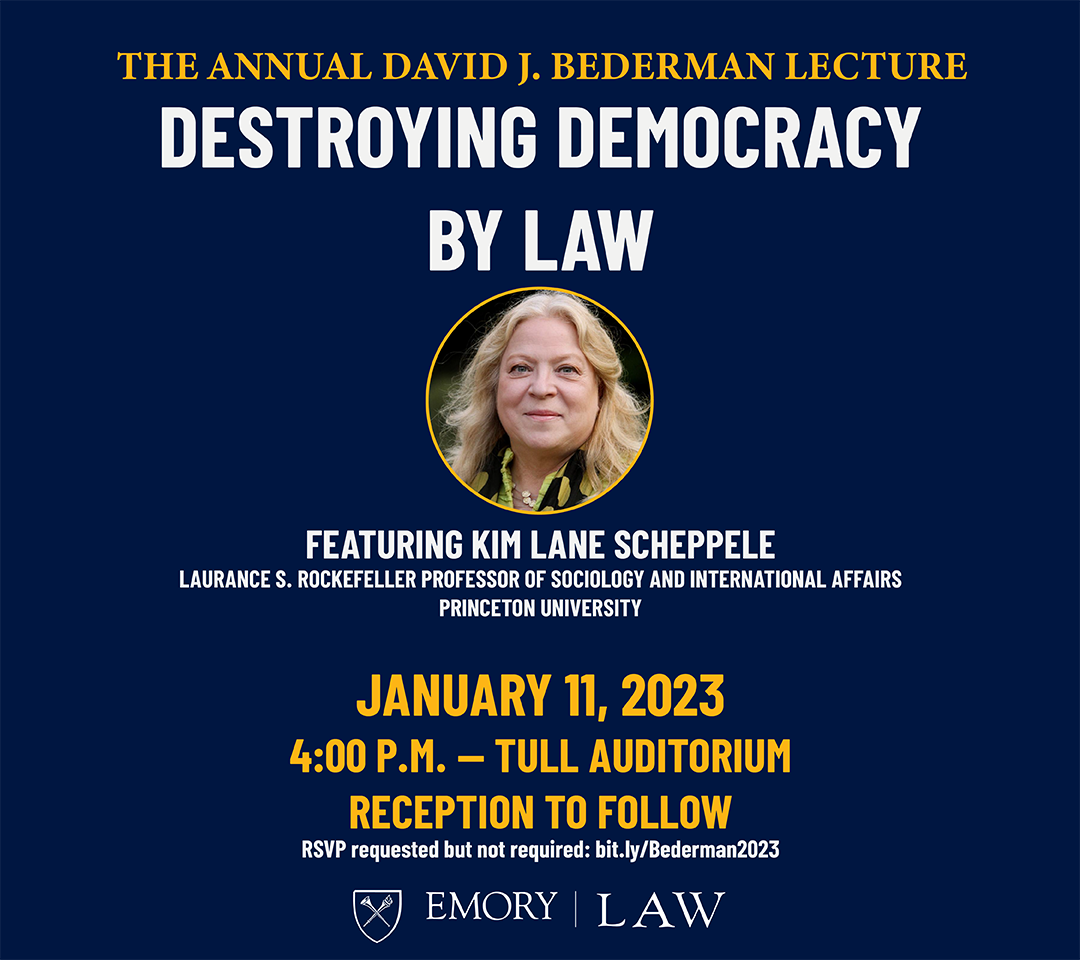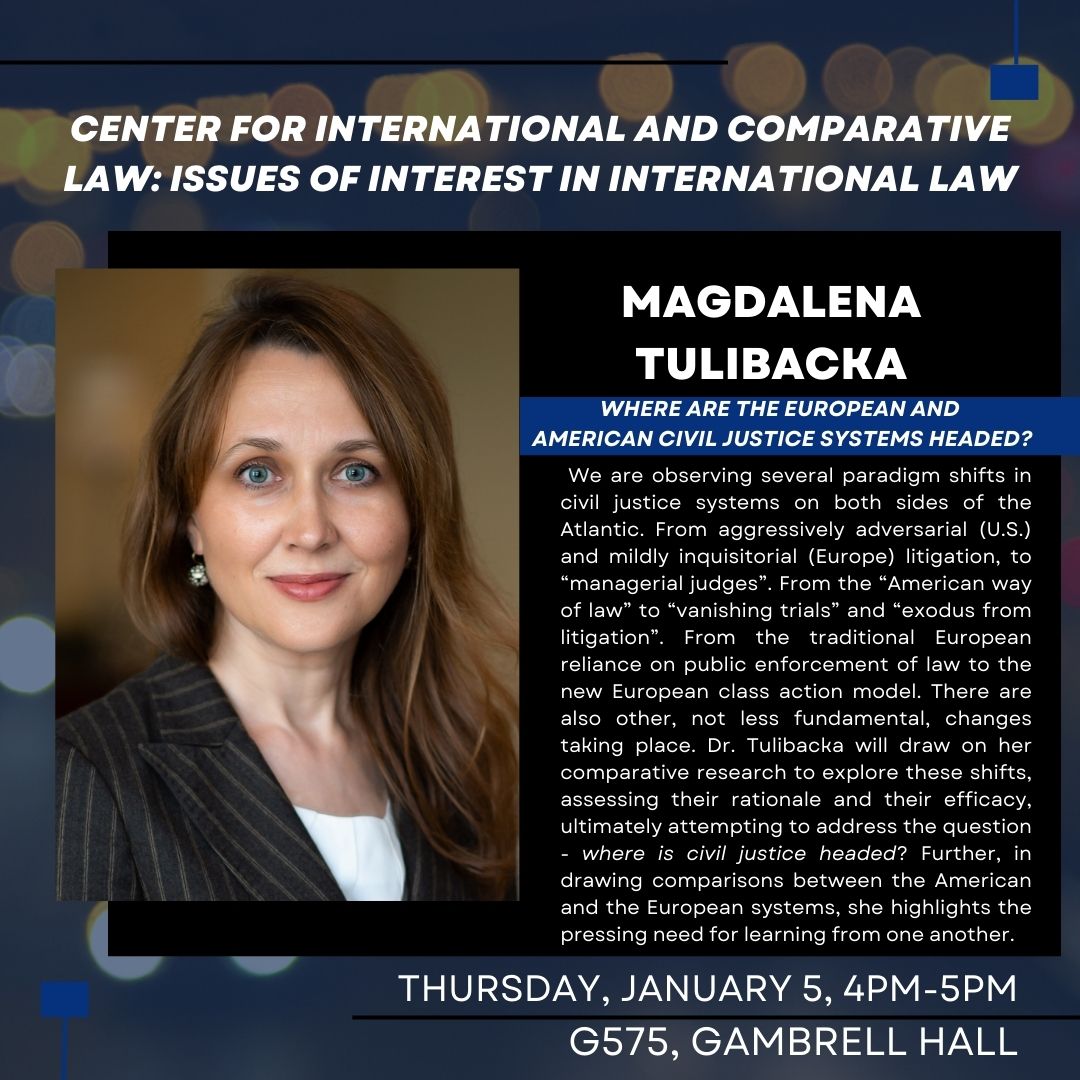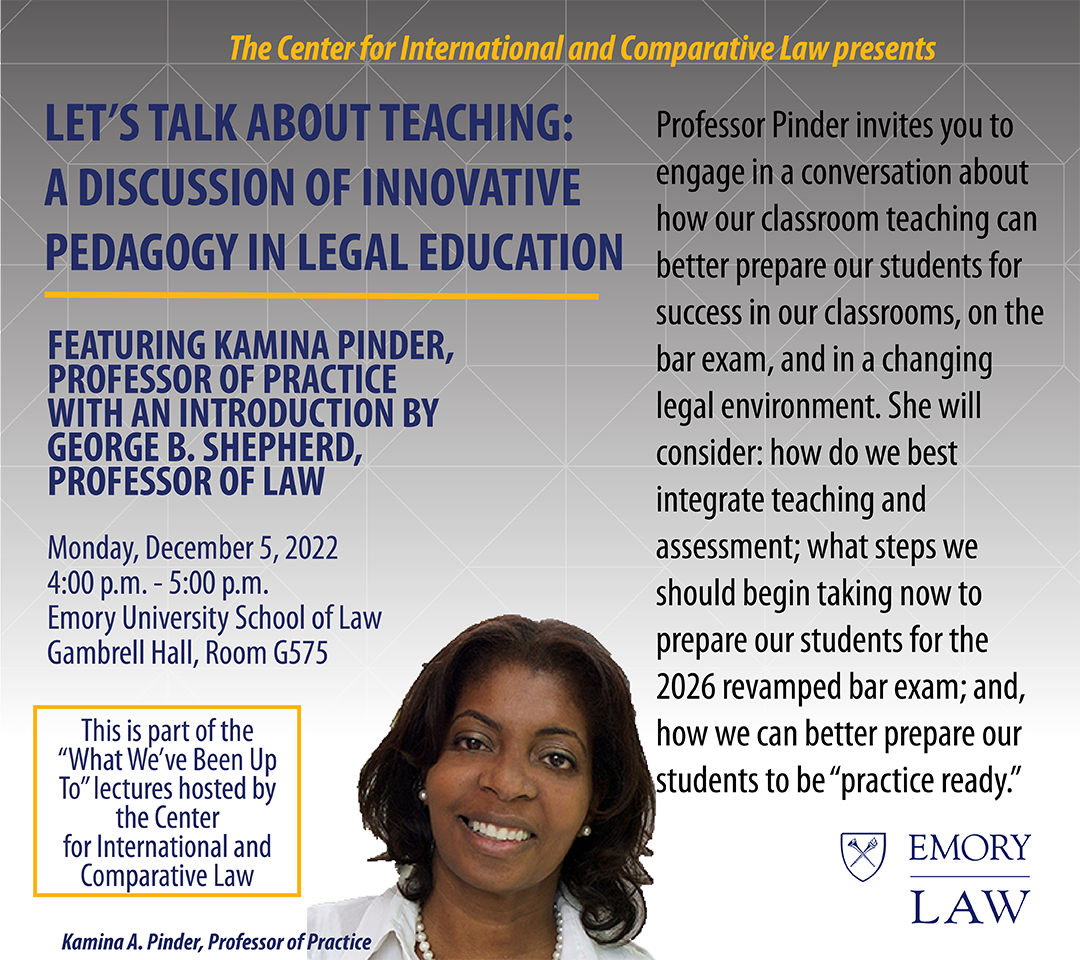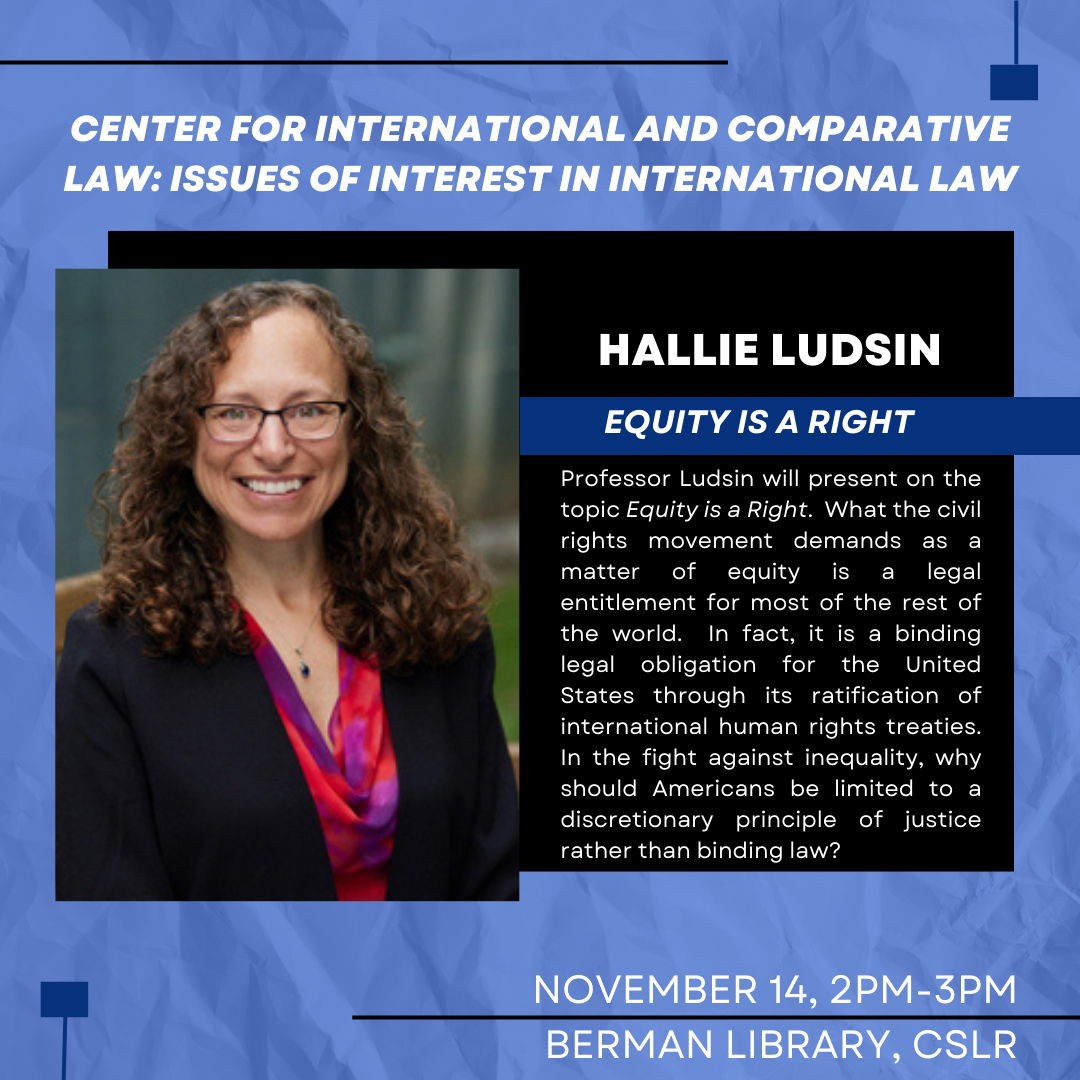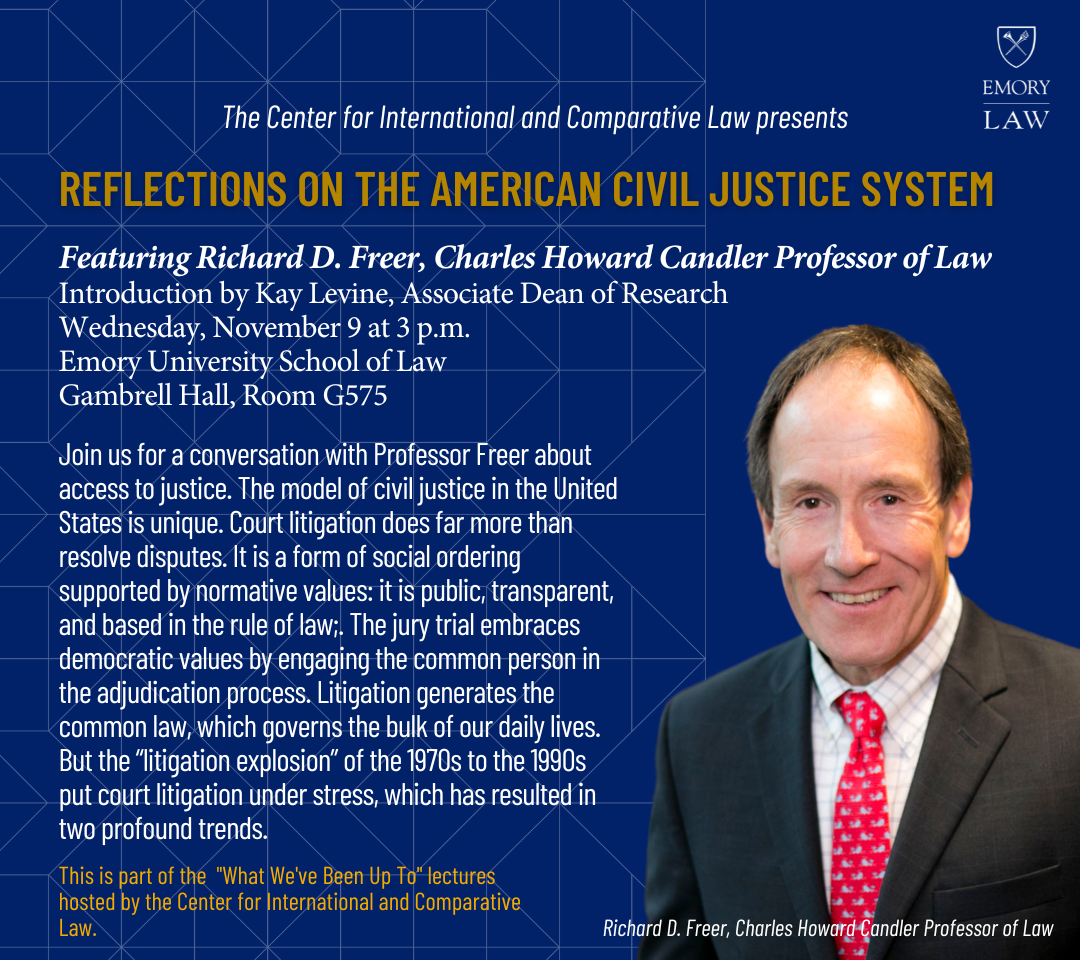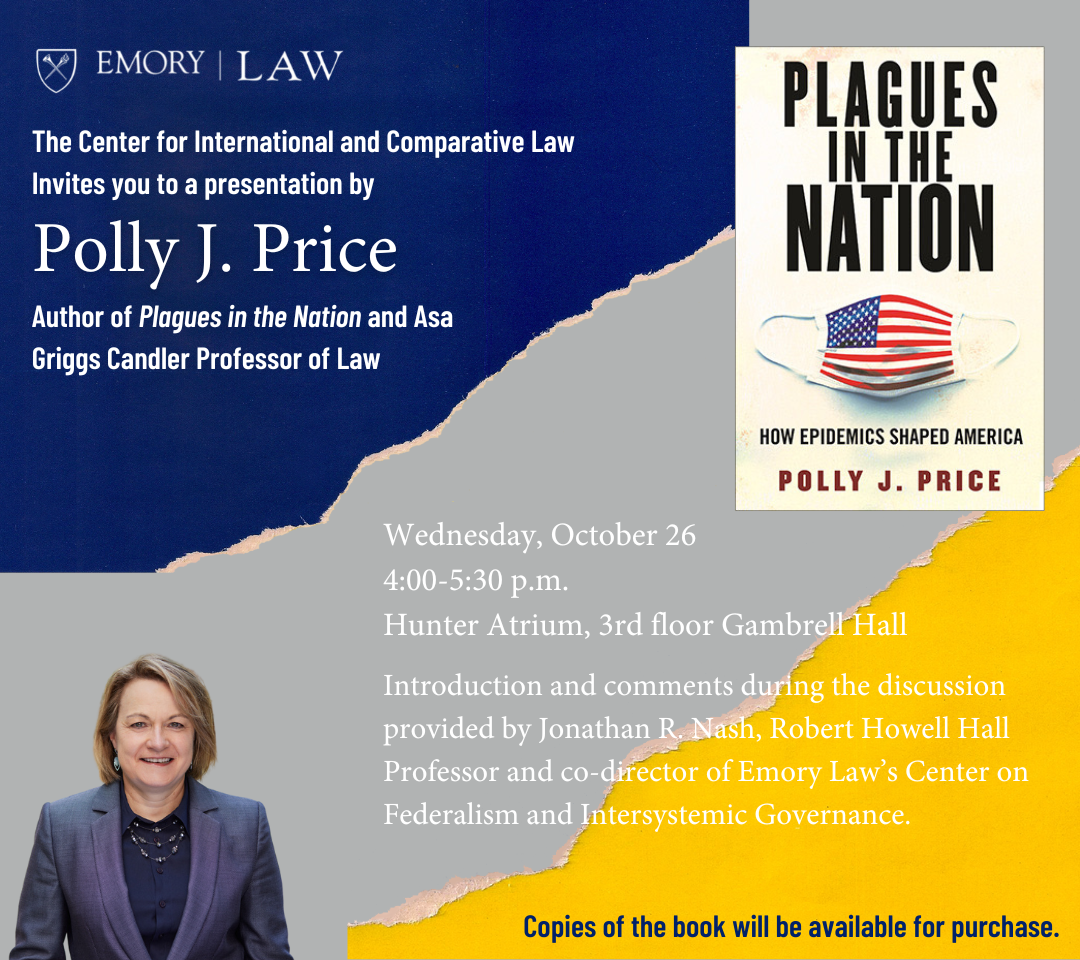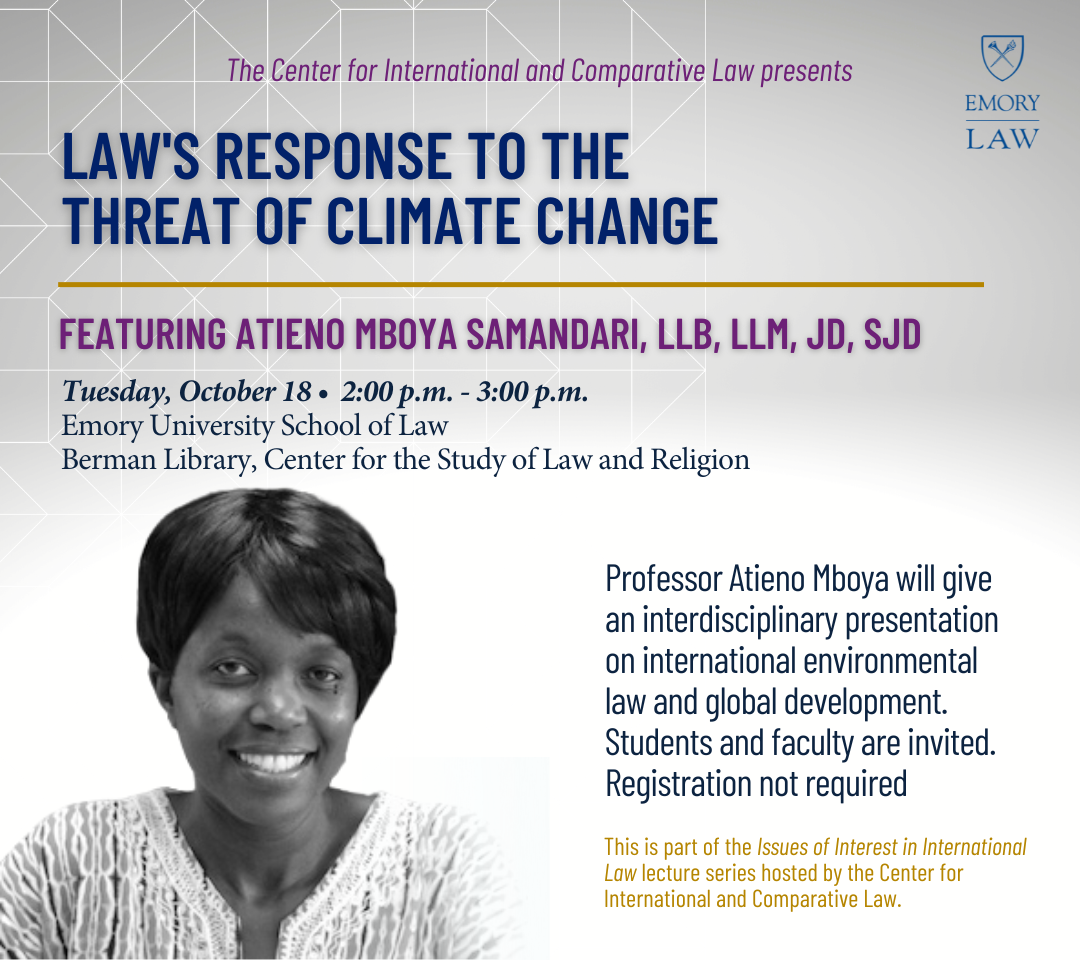The Center for International and Comparative Law hosts events throughout the academic year featuring experts on international law, national security, and foreign relations law.
Event Spotlight
2025 Bederman Lecture: Gendering the Rights of Migrants and Refugees:The Limits of Human Trafficking Laws
Wednesday, March 26, 2025, 4 p.m., Tull Auditorium, Gambrell Hall
With speaker Siobhán Mullally, United Nations Special Rapporteur on Trafficking in Persons Member of the Joint Committee of the Northern Irish Human Rights Commission and the Irish Human Rights and Equality Commission Member of the Permanent Court of Arbitration, The Hague Member of the High Council, European University Institute Member of the Department of Foreign Affairs and Trade Standing.
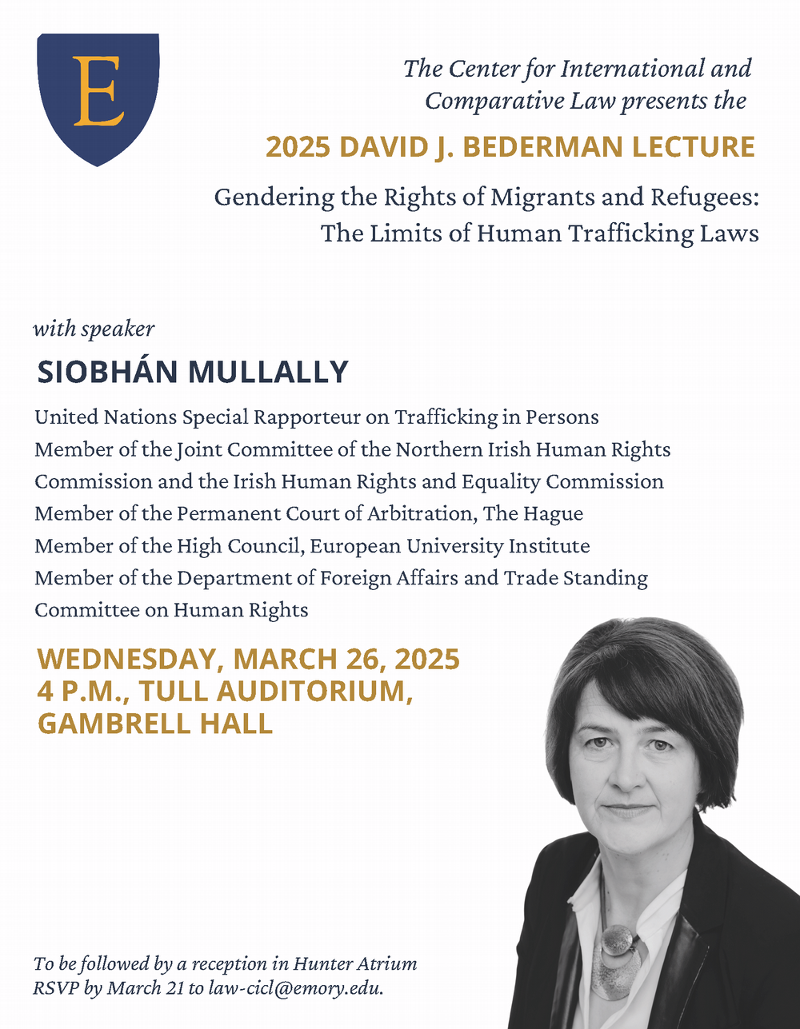
Upcoming Events
Check back for upcoming events from CICL.
Ongoing Events
Join Professor Tulibacka and guest experts for lively discussions on international law, careers, and current events-plus free coffee and donuts.
Every 2nd and 4th Thursday of the month, 12:15-1:15 p.m.

Recent Events
Family and Friends Holiday Get-Together
Friday, December 12, 2025, 1:00 p.m.
Festive treats & light refreshments; seasonal music & cozy atmosphere; family-friendly conversation and fun. All are welcome — bring your holiday spirit!

Collective Litigation in Europe Book Launch
In November 2025, CICL hosted a book launch for Collective Litigation in Europe: Law and Practice with co-authors Mary Bartkus and Magdalena Tulibacka. Bartkus and Tulibacka met with a group of students and faculty to discuss their book, which covers all forms of collective litigation across 33 European jurisdictions and boasts over forty contributors. Students enjoyed refreshments and lively discussion in the Reese Plaza Commons outside of the CICL offices.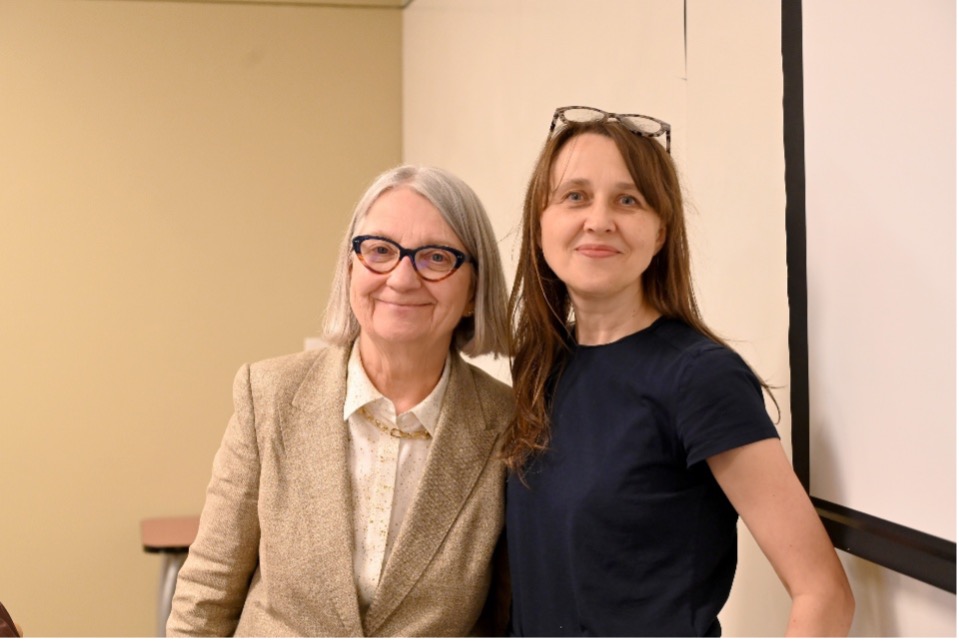
International Conference on Aggregate Litigation
CICL was proud to co-host, together with Stellenbosch University Law School in South Africa, and Lewis and Clark Law School, the International Conference on Aggregate Litigation, on June 24-25, 2025.
CICL Director Dr. Magdalena Tulibacka and Emory Law student Akosua Asafu-Adjaye Frimpong—winner of the Stellenbosch/CICL Award—both attended the conference in person.
The conference spanned two days of fascinating discussions on aggregate litigation law, practice, policy, context, and funding, and included a panel on the role of AI in aggregate cases. The recording of the conference will be available online soon.

From left to right: Akosua Asafu-Adjaye Frimpong (Emory Law, student winner of the Stellenbosch/CICL Award), Danielle Morvan (Lewis & Clark Law, student winner of the Stellenbosch/Lewis & Clark Award), Professor Bob Klonoff (Lewis & Clark Law), Dr. Magdalena Tulibacka (Emory Law), Dr. Banke Olagbegi-Oloba (Stellenbosch Law), Prof. Jagna Mucha (Warsaw University Law School), Konrad Richter (Warsaw University Law School, student winner of the Stellenbosch Young Scholar Award).
CICL Lunch and Learn with Special Guest Mary Bartukus
Wednesday, April 16, 2025, 12:15-2:00 p.m., Hunter Atrium, Lunch provided.
Mary E. Bartkus served as Executive Director and Senior Counsel, International Litigation for Merck & Co., Inc. She has represented Merck in matters before government agencies, courts and other tribunals throughout the world in product liability, antitrust, and other complex matters including international arbitration, class, representative, group and cross-border litigation. She also served as Merck's lead counsel on pharmaceutical in-licensing transactions and on joint venture and licensing relationships; and as lead in-house counsel on an international multi-jurisdictional joint venture transaction and on the defense and implementation of a pharmaceutical inventory management system in the European Union.
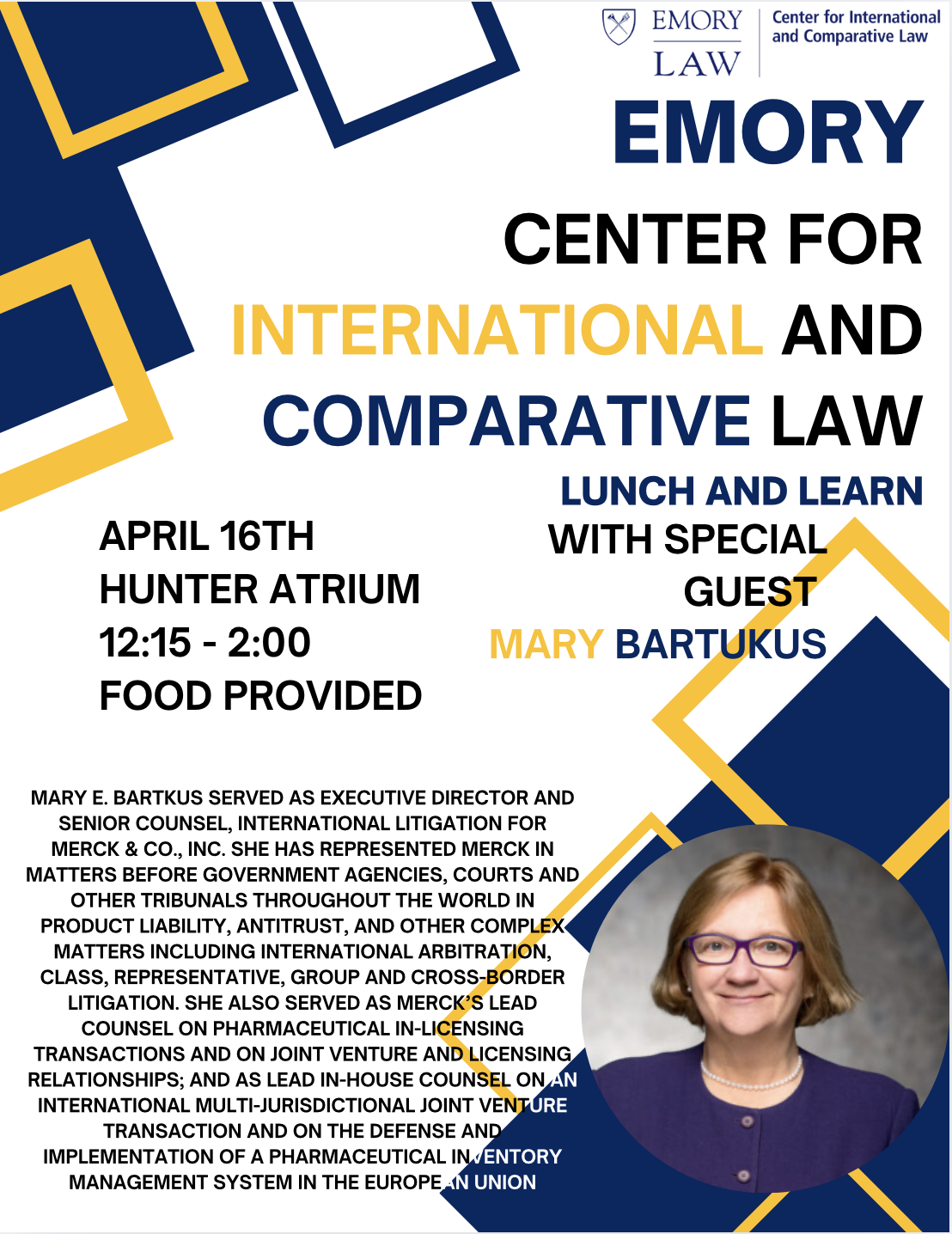
CICL Lunch and Learn with Special Guest Livingstone Johnson
Wednesday, April 2, 2025, 12:15-2:00 p.m., Hunter Atrium, Lunch provided.
Mr. Johnson leads Coca-Cola's Global Supply Chain Legal Team, overseeing projects and negotiations totaling over $40 billion annually.
His responsibilities span various practice areas including Global Marketing Partnerships, Marketing Procurement, Technical Innovation, Research & Development, Manufacturing, Quality Assurance, Global Procurement, and Global IT/Cloud services. This entails managing contracts, partnerships, and procurement across multiple sectors such as media, creative, digital, licensing, and professional services.

CICL Lunch and Learn with Special Guest John Parkerson
Wednesday, March 5, 2025, 12:15-2:00pm, Hunter Atrium, Lunch provided.
The Center for International and Comparative Law is delighted to host a special guest - John Parkerson. Mr. Parkerson is an international business attorney at Chalmers, Adams, Backer & Kaufman. His practice focuses on general corporate counseling, particularly with respect to international business and related to commercial transactions, compliance, laws applicable to import/export, international aviation law, and government affairs. Mr. Parkerson will talk about his career path, and answer questions concerning international law opportunities and careers.

2025 EILR Symposium – Migration, Law, and Justice: The Evolving Role of International and U.S. Policies
Saturday, March 1, 2025, 9:00 – 4:15 p.m., Reception to Follow, Tull Auditorium
Join the Emory International Law Review for its Annual Symposium. The symposium is co-hosted by the Center for International and Comparative Law. It will involve panel discussions with former ICE Prosecutor, former Immigration Judges, Immigration Defense Attorneys and U.S. and international law scholars.
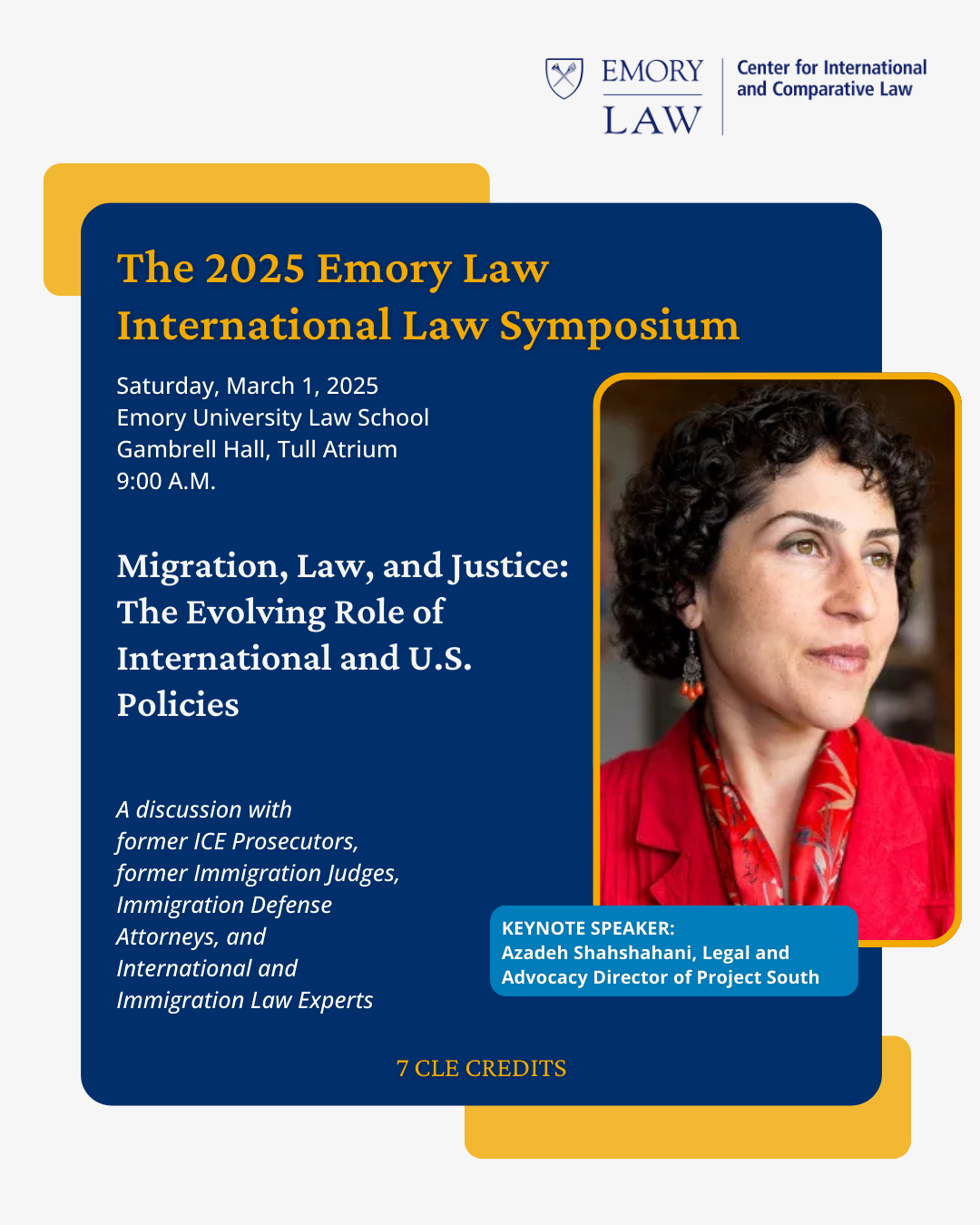
Breakfast with Professor Joseph David
Wednesday, February 26, 2025, 9:00-10:00 a.m., Berman Library, Center for the Study of Law and Religion
Please join us for breakfast as we continue the conversation with Prof. David about his work on law, religion, and technology. Space is limited and RSVP required. Please email Prof. Whittney Barth to reserve your spot.
Law, Religion, and Technology in the Post-Data Revolution Epoch
Tuesday, February 25, 2025, 4:00-5:15 p.m., Gambrell Hall, Hunter Atrium
The Center for the Study of Law and Religion and the Center for International and Comparative Law are pleased to welcome Professor Joseph David (Faculty of Law, Sapir College) for a lecture and discussion on law, religion, and technology. David will discuss how western civilization has traditionally positioned law and religion as its foundational pillars - two distinct yet intertwined sources of meaning and social order. Technology, by contrast, has been relegated to a subordinate role, viewed primarily through its instrumental effects on societal development. This approach has fostered a perception of delicate equilibria among these domains, notwithstanding periodic tensions and confrontations. David's lecture will challenge this conventional narrative by scrutinizing the unprecedented convergence of law, religion, and data-driven technologies. It poses an essential inquiry: In what ways does the advent of data science destabilize or render obsolete the historical balances between law, religion, and technology?

